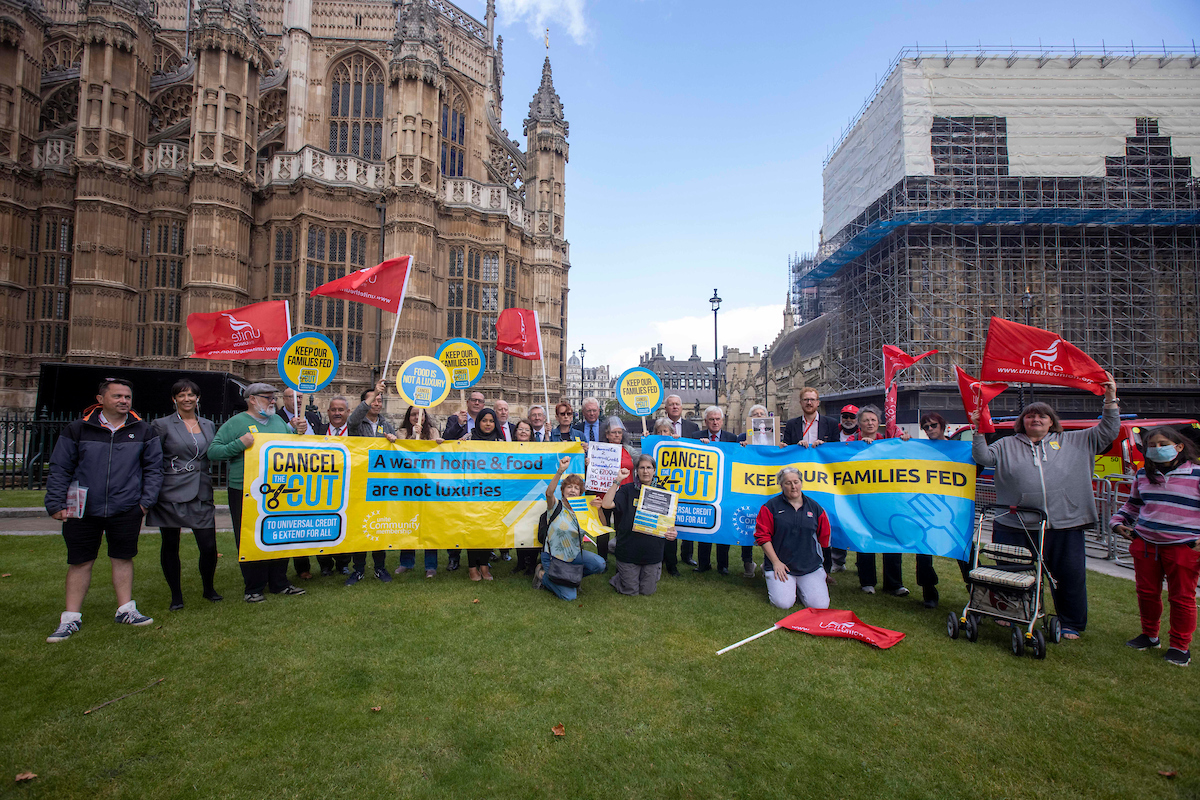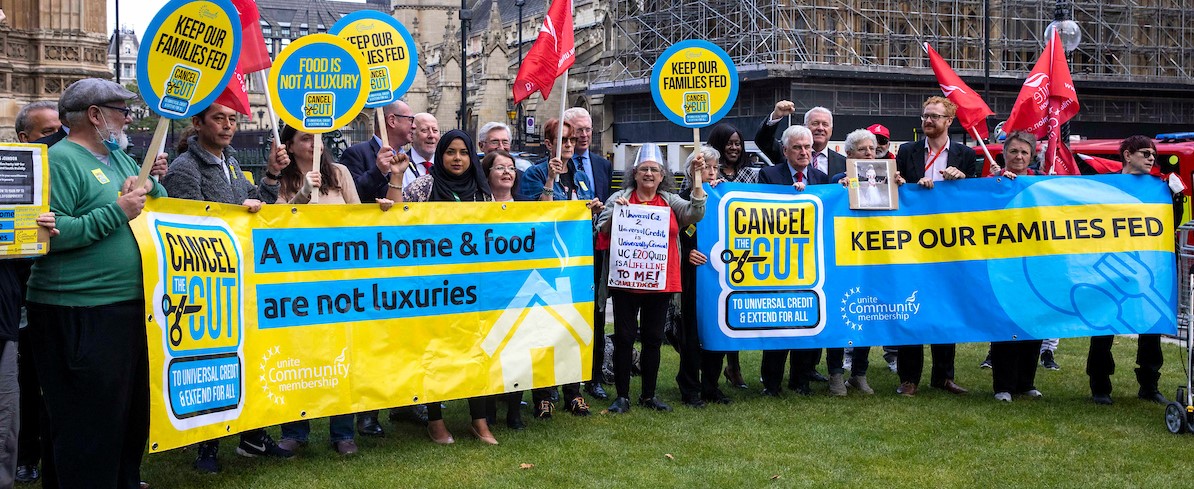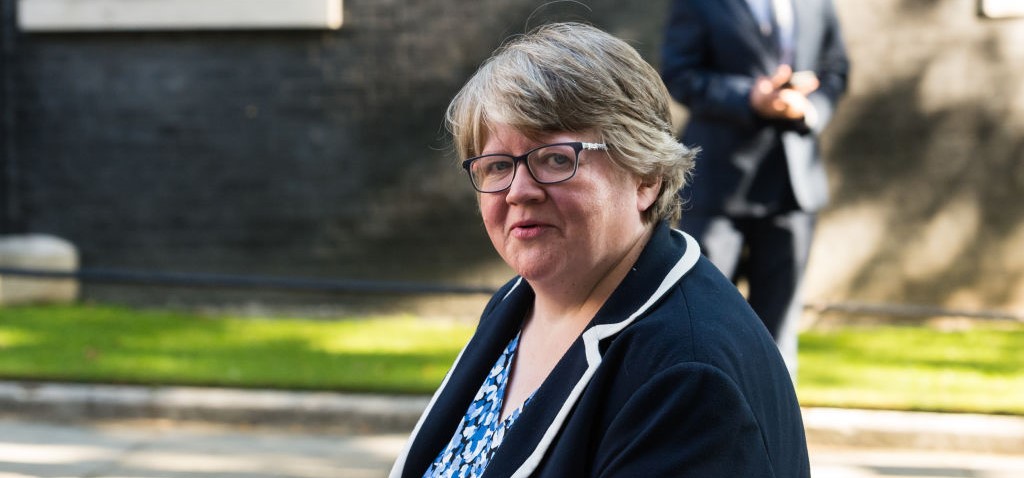â€I’ve thought about killing myself’
When Unite Community member Pat’s* husband Peter* died, she refused to leave his side for 17 hours as she held his hand for the last time.
As his full-time carer for over four years – she was devastated when Peter succumbed to cancer and a number of other health problems.
But Pat would not be given time nor space to grieve – four days later, she’d be plunged into a fight for her very survival.
After Peter’s death, the Department of Work and Pensions (DWP) was notified of Pat’s change in circumstances. Before she was even given the chance to bury her husband, Pat was summoned to the local job centre to sign on to Universal Credit – and told she must soon start looking for work.
“Not only is Pat grieving and heartbroken, but she is also disabled. She has fibromyalgia. She cannot read or write; she’s computer illiterate and attended a special needs school,” Susan*, a Unite Community member, noted.
For the DWP though, no suffering can be taken at face value – Pat, so shattered by grief she can hardly think straight, is being asked to search for work for 35 hours each week, using a computer she cannot operate, filling out forms she cannot read.
If she is ill or disabled, she must prove it. With Susan assisting her, Pat attended a meeting at the Job Centre. She brought with her a doctor’s sick note proving that she was not at present fit for work.
But they were told by a work coach “to have a cup of tea at a caff across the street and come back later for a second a meeting, where her case would be discussed,” Susan recounted. On their return Pat tried to submit the evidence explaining her situation, but they were refused re-entry, told “they should not have left in the first place” and “forced to leave.”
Even though her Carer’s Allowance is meant to continue eight weeks after her partner’s death, once she applied for Universal Credit, the DWP suddenly cut the allowance. Her circumstances have changed from dire to desperate.
Now that she potentially faces a five-week waiting period for her first Universal Credit payment, and without Carer’s Allowance or any other income, she doesn’t have money for rent or food.
“I’m afraid – afraid I’ll lose my home; I’m afraid I’ll lose everything,” she says. “I can’t stop crying. I cry all the time every day. I feel sick all the time. “I’ve thought about killing myself,” she admits.
But Pat is not alone. A disabled Unite health care worker, Emma*, who survived marital rape and psychological coercion, has spoken out about the inhuman way domestic abuse victims and other vulnerable people are treated under Universal Credit.
After divorcing her abuser, Emma was forced to switch from working tax-credits to Universal Credit, leaving her with mounting debt and at crisis point – even though officials were informed of her situation.
Emma, who has suffered with a serious autoimmune disease since childhood and limited under the instructions of occupational health to working 24 hours a week, said, “Over years, I was repeatedly raped, controlled and psychologically abused. I continued to work throughout all of this.
“Eventually, I had the courage to divorce my husband. Because he’d refused to work and I’d always paid all the bills I believed there would be no change financially.” But moving onto Universal Credit actually left Emma £350 a month worse off, as her disabled worker’s allowance was stopped.
Making things worse for Emma was the fact that her wages are paid on the last Wednesday of every month rather than on the same date. This led to her claim being cancelled and payments stopped for three months. She was also ineligible to claim her entitlement back for the month in which the claim was ended.
This is a widely experienced problem for Universal Credit claimants whose regular wages are paid on different days each month and stems from an ill-considered policy stipulation that the benefit amount is calculated to a strictly defined time period.
Emma said, “When the financial hardship hit I had a complete breakdown. I’ve since been diagnosed with PTSD, anxiety and depression. I have always paid my bills, taxes, pension and cannot believe as a health care professional with 22 years’ service I now find myself in this position. I have never in my life been so much as a penny over my overdraft – now I am mortgaged up to the hilt, am living off a credit card and have taken out two personal loans.
“Over everything, it’s Universal Credit that has broken me” Emma admitted. “I have been treated like some kind of benefit scrounger. Had I known that I would lose my tax credits and be transferred to Universal Credit before I separated from my ex-husband, I would have remained in the marriage – and that is a worrying thought. “What an absolute joke.”
Unite Community’s national co-ordinator Liane Groves agreed. “Sadly, Pat and Emma aren’t alone. Universal Credit not only leaves people worse off, but it also fails to recognise people’s individual circumstances,” Groves added. “But make no mistake – this cruelty is not a design flaw in the system; it’s the whole point.
“That’s why we’re calling for Universal Credit to be scrapped altogether in favour of a secure, well-funded and above all humane social security system that treats people with dignity and respect.”
- The 24 hour National Domestic Violence Helpline, run in partnership between Women’s Aid and Refuge is for women experiencing domestic violence, their family, friends and others calling on their behalf and can be reached on 0808 2000 247.
This feature first appeared in uniteWORKS, Autumn 2019
 Like
Like Follow
Follow


